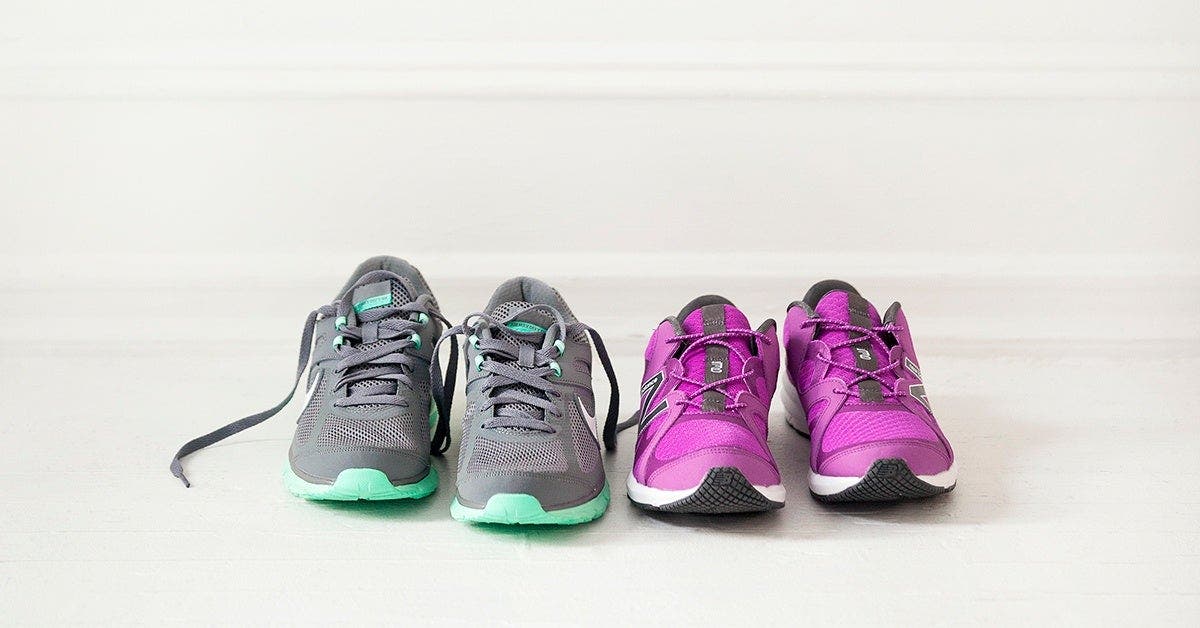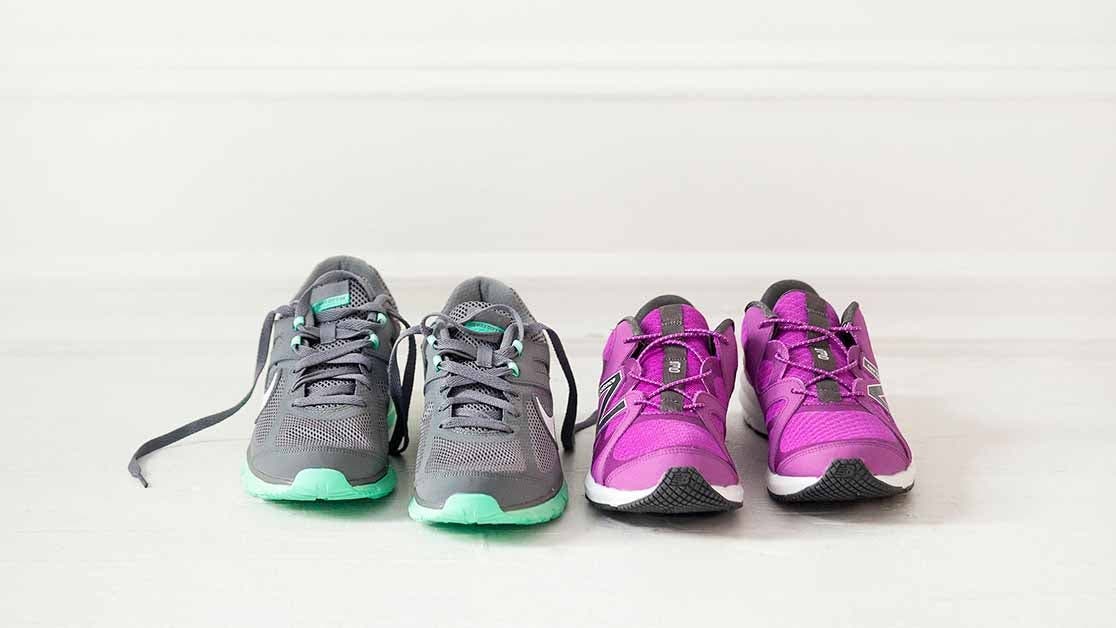4 reassuring truths for anyone who’s been missing their step goals lately


If you were following a walking plan prior to the COVID-19 outbreak, that plan may feel less than realistic at the moment. Gyms remain shuttered for public safety reasons (goodbye, lucky treadmill); in some areas, parks are closed to visitors. Group hikes with friends? Postponed until further notice. And never mind the upheaval in households—with huge shifts in work and family obligations, some of us can barely find a moment to slip on sneakers, much less duck out for a 20-minute trek every morning.
At this point, even committed walkers may be falling short of the step goals they set prior to stay-at-home measures taking effect, with feelings of frustration and stress rising inversely. Such feelings are normal right now, says Stacey Neil, a licensed psychotherapist, personal trainer, and founder of Total Fit Solutions in Los Gatos, California. On the flip side, she notes, they can also inspire us to think differently about our goals and figure out solutions that work for this particular challenging period.
Here, Neil and other fitness experts offer sound reasons not to be hard on yourself if your step counts have been missing the mark lately—and some proactive ideas to consider instead.
1. Your walking habit is still in effect.
You’ve worked so hard to establish a healthy walking routine; now you might be concerned that you’re backtracking and losing all your progress. Luckily, established fitness habits are more forgiving than that, says John Urena, an NASM-certified personal trainer and founder of Coach U Training & Performancein Los Angeles. Any walking at all keeps the habit alive, he says. As long as you’re stepping, you won’t go back to square one.
“Say you were walking 10,000 steps every day, and now, you’re only getting to 5,000,” Urena says. “You’ll be able to get right back to 10,000 relatively easily once it feels doable again.” Don’t psych yourself out in the meantime.
2. Steps are just one kind of motivator.
Confirming what many of us know from experience, a 2016 study in the journal Sports Medicine found that step counts are motivational. When we see those numbers climb on our activity trackers, we want to keep the momentum going. “We all love seeing ‘the score,’” Urena says—that is, unless it ends up being lower than we’d like. “It’s natural to feel disappointed when you don’t see it posted,” he adds.
When simply walking more isn’t feasible, Neil suggests setting some related mini goals that make sense for your current circumstances. For instance, if your morning walks have been upended by having to home-school your kids, could you try a family walk twice a week during everyone’s lunch break instead? If you’re taking 3,000 steps a day—down from 12,000, argh!—could you add 10 flights of stairs to the mix for now?
Setting achievable goals within your present reality can motivate you and provide a sense of control, which many of us are struggling to find right now, Neil says. The practice also builds belief in oneself, she adds: “All of that can snowball into feeling more positive, happier, healthier, and grounded.”
3. "A walk" can include many activities.
When people find their exercise groove, they’re usually not eager to change it. But if your long neighbourhood rambles just aren’t possible right now, it might be time for a reality check.
“If you decide you can only exercise one way, your belief system gets set, and you can only imagine that type of exercise to be worth the effort,” Neil says. She advises against this black-and-white thinking, adding, “Everything is so far out of our control right now, shades of gray have to be allowed.”
You might not be able to rack up 5,000 steps in a single, continuous session these days; at the same time, that doesn’t mean the only alternative is to flop on the couch, concurs Jennifer Lower, an NASM-certified personal trainer in Los Angeles. Can you putter in the yard for a while, perhaps? Rearrange a room? Stream a quick cardio workout from your laptop? Those steps are real steps! Plus, “All these forms of moving your body can support healthy brain chemistry, regulate stress, and help to create an overall sense of wellbeing,” Lower says. Good to know a piecemeal approach can actually pay off.
4. All movement matters.
Whatever it looks like right now, your daily physical activity has value, says David Chesworth, an ACSM-certified exercise physiologist and wellness coach at Hilton Head Health in South Carolina. You deserve credit for however much you can manage, whether it’s the widely recommended baseline of 30 minutes of moderate aerobic activity five days a week or...something way different.
“The simple message is that something is always better than nothing—even if it's not as much as your ideal,” Chesworth says.
Neil agrees. “Everything you do in a positive way toward caring for yourself matters right now,” she says. “We benefit from being kind not only to others but to ourselves. Let that be the thing you set as a goal for yourself every day.”
--
Maressa Brown is a writer and an editor in Los Angeles specializing in health and lifestyle topics. She’s written for Shape, InStyle, Parents, The Washington Post, Cosmopolitan, Better Homes and Gardens, and Women’s Health, among other outlets.
